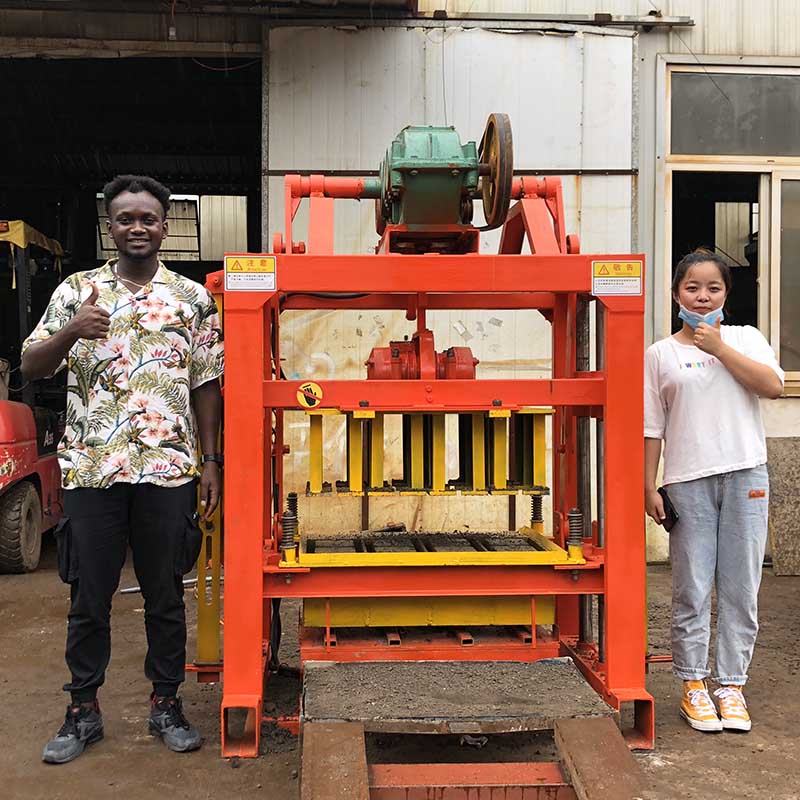
Image source:Aiwei block machine
Introduction
In an era marked by growing environmental concerns, the construction industry is undergoing a paradigm shift towards sustainability. Concrete block making machines have emerged as crucial tools in this endeavor, offering innovative solutions that contribute to more sustainable construction practices. This article explores the intersection of concrete block making technology and sustainable construction, highlighting how these machines are paving the way for a greener future in the built environment.
1. The Imperative for Sustainable Construction
The construction sector is a major contributor to environmental degradation, consuming vast resources and generating significant waste.
- Environmental Impact: The carbon footprint, resource depletion, and waste generation associated with traditional construction practices.
- Global Initiatives: The United Nations’ Sustainable Development Goals and their implications for the construction industry.
2. Concrete Block Making Machines: A Green Alternative
Concrete block making machines offer a more sustainable approach to construction by optimizing resource usage and minimizing waste.
- Reduced Cement Usage: Hollow blocks reduce cement consumption, a major source of carbon emissions in concrete production.
- Energy Efficiency: Advanced machines incorporate energy-efficient components, reducing energy consumption during production.
- Minimized Waste: Precise production techniques minimize material wastage, resulting in less on-site waste.
3. Incorporating Recycled Materials
Concrete block making machines have the capability to integrate recycled materials, further reducing environmental impact.
- Recycled Aggregates: The use of recycled aggregates in block production reduces the demand for virgin materials.
- Fly Ash Utilization: Incorporating fly ash from coal-fired power plants enhances the sustainability of blocks.
4. Longevity and Durability
Concrete blocks are known for their durability and longevity, contributing to the sustainability of structures.
- Extended Lifespan: Block-built structures require fewer repairs and replacements, reducing the overall environmental impact.
- Low Maintenance: The low maintenance requirements of block-built structures further enhance their sustainability.
5. Thermal Efficiency and Energy Savings
Concrete blocks contribute to improved energy efficiency and reduced operational costs for buildings.
- Thermal Mass: Blocks’ thermal mass regulates temperature fluctuations, reducing the need for heating and cooling.
- Energy Savings: Insulating properties of hollow blocks contribute to reduced energy consumption.
6. Water Management and Rainwater Harvesting
Concrete block structures can be designed to support sustainable water management practices.
- Permeable Pavers: Permeable concrete pavers allow rainwater to seep into the ground, reducing runoff and flooding.
- Rainwater Harvesting: Blocks can be used in rainwater harvesting systems, conserving water resources.
7. Disaster Resilience and Sustainable Rebuilding
Concrete block making machines play a vital role in disaster-resilient construction practices.
- Quick Reconstruction: Rapid block production facilitates efficient post-disaster reconstruction.
- Structural Integrity: Block-built structures offer enhanced resistance to natural disasters.
8. The Role of Certification and Standards
Certification bodies and industry standards play a pivotal role in promoting sustainable concrete block production.
- LEED and Green Building Certification: How certifications encourage sustainable practices in block manufacturing.
- Local Initiatives: Adherence to regional sustainability standards and regulations.
9. Case Studies: Sustainable Concrete Block Projects
Highlight real-world examples of projects that showcase the sustainable potential of concrete block making machines.
- Green Schools: Sustainable schools built with concrete blocks that incorporate energy-efficient features.
- Affordable Housing: Housing projects that prioritize sustainable construction using advanced block making technology.
10. Challenges and Future Directions
Despite the progress, challenges persist in fully integrating sustainable concrete block making practices.
- Awareness and Education: The need to educate stakeholders about the benefits of sustainable block production.
- Supply Chain Sustainability: Ensuring the sustainability of raw materials used in block production.
Сonclusion: Paving the Path to a Greener Built Environment
Concrete block making machines have evolved from mere construction tools to agents of sustainable change. Their ability to optimize resource usage, reduce waste, and enhance building performance aligns with the growing demand for sustainable construction. As the industry continues to embrace innovative solutions, concrete block making machines are poised to play a pivotal role in building a greener, more resilient, and eco-friendly future. By adopting these technologies, the construction industry can contribute to global efforts to mitigate environmental impact while creating structures that stand the test of time.
